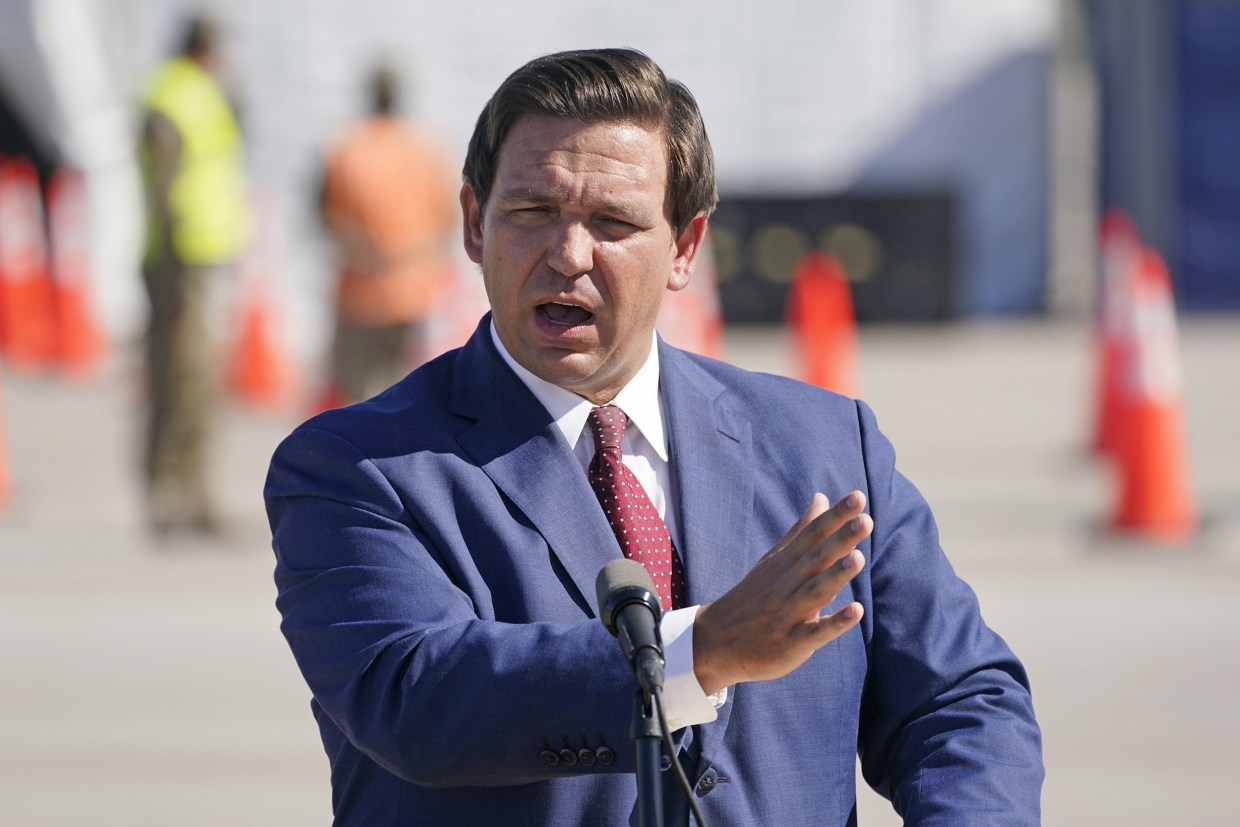Florida Governor Ron DeSantis proposed a program to let businesses pay state fees in digital currencies, part of a series of crypto-related proposals included in the state’s budget for next year.
Speaking Thursday in Tallahassee, DeSantis also said the state would launch pilot programs to explore the use of blockchain technology for Medicaid payments and vehicle titles, with the latter running through the Department of Florida Highway Safety and Motor Vehicles.
DeSantis, a Republican, is trying to harness Florida’s growing reputation as an emerging destination for crypto investment. He said crypto enthusiasts have flocked to South Florida, where officials and business boosters have embraced the industry. Even the Miami Heat’s basketball stadium was rebranded during the pandemic as FTX Arena, after the cryptocurrency exchange platform run by billionaire Sam Bankman-Fried.
DeSantis is piggybacking off of the campaign of Miami Mayor Francis Suarez, who has used Twitter to lure more crypto businesses to the region, and has for months advocated for cryptocurrency-friendly policies at the local level. He also took one of his paychecks in Bitcoin, a pledge that was later replicated by New York Mayor-elect Eric Adams. Many of those steps have been largely symbolic, but industry leaders say they have an impact on crypto entrepreneurs deciding where to build their businesses.
“Our view as the state government is this is something that we welcome and we want to make sure that the state government is crypto-friendly,” DeSantis said.
Florida isn’t the first jurisdiction to take steps involving cryptocurrency. Wyoming lawmakers have aggressively promoted legislation to lure the industry. And just this week, Puerto Rico House Speaker Rafael “Tatito” Hernandez said he would start meeting with blockchain leaders on the Caribbean island about using blockchain to add transparency and accountability to transactions with the public sector.
But the progress isn’t always linear. In 2018, Ohio was the first state to let taxpayers make payments in digital assets, but the program was suspended a year later amid concerns that it didn’t meet the state’s standards. It remains suspended to this day.
The Florida announcements came as part of a presentation on DeSantis’s planned $99.7 billion budget for next year.
Read original story on Fortune


